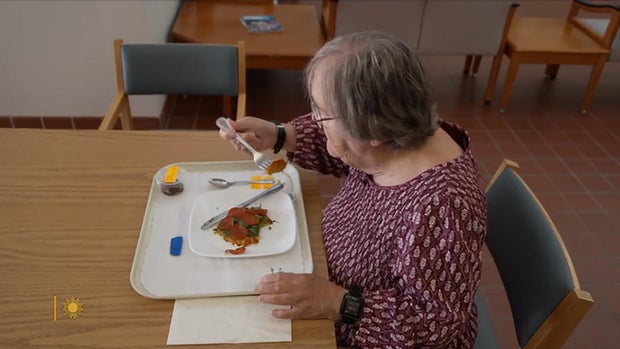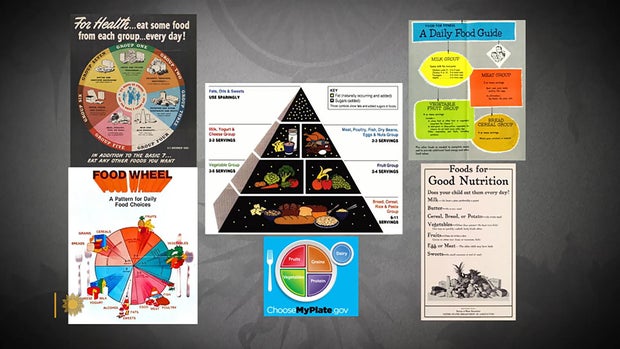CBS News
Protesters interrupt Adam Schiff’s victory speech chanting “Cease-fire now”

A group of protesters interrupted Democratic Rep. Adam Schiff‘s victory speech on Super Tuesday, shouting him off the stage.
Schiff was at the Avalon Theater in Hollywood Tuesday night, declaring victory after learning he will advance to the U.S. Senate race. At one point, a scuffle broke out after multiple demonstrators in the crowd chanted “cease-fire now” and “let Gaza live” loud enough to temporarily halt Schiff’s speech.
As the protesters grew louder, Schiff tried to quell the situation.
“We are so lucky, so lucky to live in a democracy where we all have the right to protest,” he said. “We are so lucky to live in that kind of democracy and we want to make sure we keep this kind of democracy.”
Schiff, a vocal supporter of Israel, on Tuesday backed the White House’s push for a Gaza cease-fire as the humanitarian crisis grows.
A clearly shaken Schiff was able to briefly thank his supporters and acknowledging protestors before leaving the stage.
Republican Steve Garvey, a former professional baseball player who jumped into the Senate race in October, will also advance in California’s Senate primary. He gave a victory speech earlier in the night from Palm Springs.
Schiff and Garvey will face off in the November general election to fill the seat of the late Sen. Dianne Feinstein. Feinstein died in September.
Thanks for reading CBS NEWS.
Create your free account or log in
for more features.
CBS News
A study to devise nutritional guidance just for you

It’s been said the best meals come from the heart, not from a recipe book. But at this USDA kitchen, there’s no pinch of this, dash of that, no dollops or smidgens of anything. Here, nutritionists in white coats painstakingly measure every single ingredient, down to the tenth of a gram.
Sheryn Stover is expected to eat every crumb of her pizza; any tiny morsels she does miss go back to the kitchen, where they’re scrutinized like evidence of some dietary crime.
Stover (or participant #8180, as she’s known) is one of some 10,000 volunteers enrolled in a $170 million nutrition study run by the National Institutes of Health. “At 78, not many people get to do studies that are going to affect a great amount of people, and I thought this was a great opportunity to do that,” she said.
CBS News
It’s called the Nutrition for Precision Health Study. “When I tell people about the study, the reaction usually is, ‘Oh, that’s so cool, can I do it?'” said coordinator Holly Nicastro.
She explained just what “precise” precisely means: “Precision nutrition means tailoring nutrition or dietary guidance to the individual.”
The government has long offered guidelines to help us eat better. In the 1940s we had the “Basic 7.” In the ’50s, the “Basic 4.” We’ve had the “Food Wheel,” the “Food Pyramid,” and currently, “My Plate.”
CBS News
They’re all well-intentioned, except they’re all based on averages – what works best for most people, most of the time. But according to Nicastro, there is no one best way to eat. “We know from virtually every nutrition study ever conducted, we have inner individual variability,” she said. “That means we have some people that are going to respond, and some people that aren’t. There’s no one-size-fits-all.”
The study’s participants, like Stover, are all being drawn from another NIH study program called All Of Us, a massive undertaking to create a database of at least a million people who are volunteering everything from their electronic health records to their DNA. It was from that All of Us research that Stover discovered she has the gene that makes some foods taste bitter, which could explain why she ate more of one kind of food than another.
Professor Sai Das, who oversees the study at Tufts University, says the goal of precision nutrition is to drill down even deeper into those individual differences. “We’re moving away from just saying everybody go do this, to being able to say, ‘Okay, if you have X, Y and Z characteristics, then you’re more likely to respond to a diet, and somebody else that has A, B and C characteristics will be responding to the diet differently,'” Das said.
It’s a big commitment for Stover, who is one of 150 people being paid to live at a handful of test sites around the country for six weeks – two weeks at a time. It’s so precise she can’t even go for a walk without a dietary chaperone. “Well, you could stop and buy candy … God forbid, you can’t do that!” she laughed.
While she’s here, everything from her resting metabolic rate, her body fat percentage, her bone mineral content, even the microbes in her gut (digested by a machine that essentially is a smart toilet paper reading device) are being analyzed for how hers may differ from someone else’s.
Nicastro said, “We really think that what’s going on in your poop is going to tell us a lot of information about your health and how you respond to food.”
CBS News
Stover says she doesn’t mind, except for the odd sounds the machine makes. While she is a live-in participant, thousands of others are participating from their homes, where electronic wearables track all kinds of health data, including special glasses that record everything they eat, activated when someone starts chewing. Artificial intelligence can then be used to determine not only which foods the person is eating, but how many calories are consumed.
This study is expected to be wrapped up by 2027, and because of it, we may indeed know not only to eat more fruits and vegetables, but what combination of foods is really best for us. The question that even Holly Nicastro can’t answer is, will we listen? “You can lead a horse to water; you can’t make them drink,” she said. “We can tailor the interventions all day. But one hypothesis I have is that if the guidance is tailored to the individual, it’s going to make that individual more likely to follow it, because this is for me, this was designed for me.”
For more info:
Story produced by Mark Hudspeth. Editor: Ed Givnish.
“Sunday Morning” 2024 “Food Issue” recipe index
Delicious menu suggestions from top chefs, cookbook authors, food writers, restaurateurs, and the editors of Food & Wine magazine.
CBS News
A new generation of shopping cart, with GPS and AI

Watch CBS News
Be the first to know
Get browser notifications for breaking news, live events, and exclusive reporting.
CBS News
“All hands on deck” for Idaho’s annual potato harvest

Watch CBS News
Be the first to know
Get browser notifications for breaking news, live events, and exclusive reporting.





